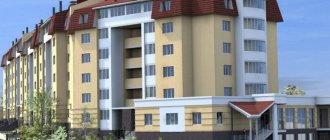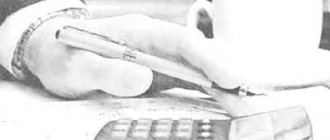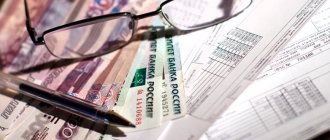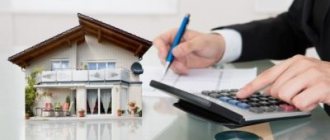Owners of apartment buildings often see such a line in housing and communal services receipts as payment for the maintenance and repair of residential premises. What this expense item is, what items it includes and how its size is determined is described in detail in this article.
Material collected
Andrey Pavlyuk
lawyer, candidate of historical sciences, author of more than 50 scientific and popular science publications
Dear readers! The articles contain solutions to common problems. Our lawyers will help you find the answer to your personal question free of charge To solve your problem, call:
You can also get a free consultation online.
Payment for maintenance and repair of housing in the receipt, what is it
In accordance with paragraph 1 of Art. 153 of the Housing Code of the Russian Federation, citizens are obliged to pay rent for residential premises, as well as the utility resources they consume, on time. This obligation arises regardless of the status of the payer, that is, it can be the owner of an apartment, a tenant, a tenant, a member of a housing cooperative, etc.
The composition of expenses for the maintenance and repair of residential premises is determined in clause 29 of section III of the Decree of the Government of the Russian Federation of August 13, 2006 No. 491. This list includes the following cost items:
- maintaining in-house engineering systems in proper condition,
- utility payments for resources (electricity, cold and hot water) used in servicing the common property of an apartment building (MKD),
- payment for services and work of third parties involved in solving one or another problem related to the maintenance of housing (for example, removing garbage from the local area, eliminating breakdowns, etc.),
- covering expenses arising from the collection of debts for payment of housing and communal services,
- taking meter readings,
- maintenance of information systems in which data on utility payments is accumulated, and receipts are prepared for residents of apartment buildings.
Can the management company charge for work prescribed by the State Housing Authority, unforeseen work?
According to the current procedure, the list of works for the maintenance and repair of residential premises is fixed in an agreement concluded with the management company. It is for this approved list that owners pay a monthly fee.
However, in practice, sometimes additional costs arise due to special circumstances. In this situation, the management company has the right to include in the receipt for payment of housing and communal services also expenses associated with the performance of unforeseen work, including those ordered by the State Housing Inspectorate. Owners of apartment buildings will have to compensate for these costs.
REFERENCE. In practice, quite often the management company has to prove in court that the expenses incurred were unforeseen. And this is not easy to do. This conclusion is confirmed by many examples of lost trials (for example, case No. A49-6073/2016, case No. A51-8268/2016).
Thus, the management company cannot include unplanned expenses (in excess of the established ones) in the payment document without agreement with the owners. The only exceptions are situations where unforeseen work was carried out, due to which additional costs had to be incurred. In this case, the management company may include them in the receipt. But even in this situation, the management company should be prepared for the fact that it may have to prove in court the legality of its actions (in the event that the owners do not agree).
Minimum tariff for housing maintenance in Moscow 2020
Starting from the new year, a separate utility line “removal of municipal waste” will appear in the unified payment documents; the amount of the amount in this line will depend on several factors, including where in the Moscow region the payer of housing and communal services lives. “The amount of payment for utility services.” services are subject to government regulation and are calculated based on two components: the tariff for a utility resource, the volume of consumption of a utility resource.
Contents L/F Tariff for the Moscow Region 2020
If we talk about changes in utility bills, then in 2020 they will be within the limits set by the government of the Russian Federation, that is, from January 1, the increase will be 1.7%, from July 1, utility bills will increase by no more than 4.8% .
The reason for such a noticeable change in the figures in receipts is said to be an increase in another indicator - the VAT rate. According to the law adopted in the country, it increased by 2%. Even if we do not take into account the presence of inflation, such a change entails an increase in prices for most products and services provided to citizens by approximately 1.7%.
What else is included in the housing and communal services receipt: detailed analysis
Payment document for housing and communal services
The fee structure for housing and communal services receipts is disclosed in detail in Art. 154 Housing Code of the Russian Federation. In accordance with clause 2 of the mentioned article of housing legislation, the following expense items are indicated in the payment document for the owners of premises in an apartment building:
1. Maintenance of residential premises - here the payment for work and services for managing an apartment building is reflected, and payments for utility resources consumed for general house needs are also indicated in separate lines, namely:
- cold water,
- hot water,
- wastewater disposal,
- electricity.
2. Payment for utilities - this expense item details the accrued amounts for each type of utility resource consumed by a specific apartment owner. These include:
- heating,
- hot and cold water supply,
- drainage,
- power supply,
- gas supply,
- management of municipal solid waste.
3. Contribution for major repairs - its amount is calculated based on a single established rate and the area of a specific apartment. It is included in the payment document on a monthly basis and is payable by the owners of the apartment buildings.
In general, the structure of the housing and communal services receipt is presented in the following 5 sections (Order of the Ministry of Construction of the Russian Federation dated January 26, 2018 No. 43/pr):
- data of the payer and contractor, information about meter readings,
- payment for the maintenance of residential premises, utilities and contributions for major repairs,
- reference Information,
- calculation of amounts to be transferred, taking into account installments,
- information on recalculations for housing and communal services.
What should not be on the receipt
A complete list of information that should be reflected in the housing and communal services payment document is given in clause 69 of section VI of the Decree of the Government of the Russian Federation dated May 6, 2011 No. 354.
However, clause 69(1) also specifies information that cannot be included on the receipt. We are talking about advertising (products, services, etc.). The only exceptions are social advertising and reference information.
IMPORTANT. Management companies must remember that violation of this condition is subject to administrative liability. According to paragraph 1 of Art. 14.3 of the Code of Administrative Offenses of the Russian Federation for such an offense the Criminal Code may be subject to a fine in the amount of 100,000 to 500,000 rubles .
Also, the following expense items cannot be included as a separate line in the housing and communal services receipt:
- intercom payment,
- garbage removal,
- replacement of common building communications, etc.
The fact is that these types of costs are already included in the amount charged for the maintenance of residential premises. Thus, when such columns are included, it turns out that the owner pays twice for the same service.
Housing and communal services tariffs from January 1, 2020, in Moscow
And so on. You can take any utility service in any city in the country and easily find out its cost from January 1, 2020, adding 1.7%. Or it’s easier to do it - add this percentage to your total utility costs. This is how much housing and communal services costs will increase in the new year.
Why will housing and communal services tariffs increase after the new year?
Tariffs for housing and communal services in Russia are economically justified (at least in theory this is so), their prices are not commercial. This means that after the VAT increase, utility service providers have a problem with paying the tax - there is simply nowhere to get money to pay VAT at the increased rate.
This is interesting: How long will it take to travel on vacation in 2020?
Currently, Muscovites pay rubles for heating. The tariff for hot water supply is currently RUB. Drinking water - cold water supply - currently costs citizens 38 rubles. Water disposal currently costs 27 rubles. The city also approved new electricity tariffs for the population. Their next revision will take place no earlier than July of this year, the department’s press service emphasized.
Amount of payment for the maintenance of residential premises
The procedure for determining the amount of payment for the maintenance of residential premises is described in clauses 31-36 of section III of the Decree of the Government of the Russian Federation of August 13, 2006 No. 491.
The procedure for determining the amount of this payment differs depending on the method of managing the apartment building (with the involvement of a management company, independently by the apartment owners, by creating an HOA, etc.).
If the management of an apartment building is carried out by the management company, then the amount of payment for the maintenance of residential premises is determined according to the following rules (clause 31 of the above-mentioned Resolution of the Government of the Russian Federation):
- the decision on the amount of this payment is made at a general meeting of apartment owners,
- When determining the amount, the opinion of the management company must be taken into account,
- the fee is set for a period of at least 1 year,
- The management company is obliged to submit its proposals on the amount of money for the maintenance of apartment buildings for consideration by homeowners 30 days before the general meeting. This information is posted on notice boards at the entrance so that everyone can familiarize themselves with it.
Who sets the tariff and how?
Sometimes in practice there are situations when the owners of an apartment building have not made a decision on the amount of payment for the maintenance of residential premises. In this case, the appropriate tariff is used to determine this amount. It is established by local governments of a particular region or city.
When determining the size of this tariff, the competent authorities proceed from the cost of work and services included in the list approved by the general meeting of owners of apartment building premises. In addition, it also takes into account the provisions of the Decree of the Government of the Russian Federation dated April 3, 2013 No. 290, which contains the minimum list of work necessary to maintain an apartment building in proper condition.
How is it calculated
If the owners of premises independently set fees for the maintenance of residential premises, then its amount is calculated based on the estimate provided by the management company. This document should describe in detail all the work and services that are planned to be performed and their current cost.
If the owners of the apartment building have not decided on the amount of payment for the maintenance of the residential premises, then it is calculated based on the established tariff and the area of the apartment.
As a rule, to calculate the amount for the maintenance and repair of residential premises, the following formula is used:
Payment for the maintenance of residential premises = T * Sq+ (N * Smop * Sq/Stot) * Tkr
The indicators given in the formula are deciphered as follows:
- T – tariff established by the local government,
- Sq – area of a specific room (apartment),
- N is the consumption rate of a specific utility resource,
- Smop – area of common premises,
- Stotal – total area of residential and non-residential premises,
- Tkr is the tariff established for a specific type of utility resource.
Tariff in Moscow
In Moscow, the tariffs used to calculate payments for the maintenance of residential premises are established in Moscow Government Decree No. 848-PP dated December 13, 2016 (Appendix No. 5). They vary depending on the floor on which the owner lives, the presence/absence of amenities, as well as a garbage chute and an elevator.
Tariffs for the maintenance of residential premises in force in Moscow in 2020 are shown in the table below:
The price for maintaining a residential premises
| Apartment building category | Apartments located on the ground floor, rubles | Apartments located on the second and subsequent floors, rubles |
| Houses with all amenities, with garbage chute and elevator | 26,58 | 30,49 |
| Houses with all amenities, with an elevator, but without a garbage chute | 24,66 | 28,14 |
| Houses with all amenities, with a garbage chute, but without an elevator | 26,58 | 26,58 |
| Houses that do not have 1 or more amenities, with wear and tear of 60%, premises unsuitable for use | 15,65 | 15,65 |
What is included in the maintenance of housing in an apartment building?
The list of services includes carrying out major repairs and maintaining the common area in proper condition. There are no questions regarding repair work, but the concept of “Maintenance” of the house requires detailed explanation.
We recommend reading: Income in 2020 for Budgetary Institutions
- Lighting of common areas.
- Cleaning of common areas.
- Maintaining cleanliness in the area near the house.
- Landscaping of the yard and surrounding area.
- Ensuring normal temperature and relative humidity inside the house.
- Ensuring all safety standards.
- Timely removal of waste from the premises
- Providing current and major repairs in an apartment building.
Is it possible to challenge the maintenance fee?
In practice, situations often arise when apartment owners do not agree with the amounts reflected in the housing and communal services receipt. This may be expressed in the following:
- the presence in the payment document of additional items of expenses that were not initially discussed,
- costs that are counted twice,
- overpayment for the maintenance of residential premises, etc.
In this case, the payer has every right to challenge the accrued maintenance fee. You can do this in the following order:
- First, you need to send a pre-trial claim to the management company, containing a request for a recalculation of the amount indicated in the receipt, or for the return of the overpaid amount.
- If the management company does not comply with the requirement within the prescribed period, the dissatisfied owner has every right to file a lawsuit against it in a judicial authority.
REFERENCE . Separately, it is worth noting that disagreements often arise between apartment owners and management companies regarding the fees established in the agreement for the maintenance of residential premises. However, the parties to such an agreement do not have the right to unilaterally change this payment. This issue can only be resolved peacefully (taking into account the opinions of both parties) or through the courts.
Thus, in addition to paying for utilities, owners of apartment buildings are also required by law to pay for the maintenance and repair of residential premises. This cost item is indicated on a separate line in the housing and communal services receipt.
When preparing the material we used:
- Amount of payment for the maintenance of residential premises - RosKvartal®
- Owners must compensate the management company for unforeseen expenses
- What is required and what is prohibited to be placed on payment documents - RosKvartal®
- What is included in the maintenance and repair of housing in the receipt - 1C: Housing and communal services website
- How to challenge utility bills – EnergoVOPROS.ru
- The Ministry of Construction reminded that owners cannot independently change the amount of payment for the maintenance of housing - Advokatskaya Gazeta
Rights and responsibilities of the management company for maintaining the house in 2020
- makes timely repairs of engineering and communication networks;
- maintains equipment in serviceable condition;
- carries out current and major repairs;
- monitors the functionality of electrical networks;
- if necessary, performs finishing work in entrances and staircases.
Improvement of the local area
Residents have the right to choose the company that is most suitable for their situation, so as not to pay extra money for non-existent services. There is high competition in the market for these types of activities, so you can look for the most conscientious organizations that perform their duties efficiently and on time, and also require payment solely for the services provided.
He must maintain the living space in proper condition, not allowing it to be mismanaged, not violate the procedure for using the living space, the rights and legally protected interests of citizens living in the neighborhood, as well as the rules for the maintenance of common property in the apartment building. Owners of common property jointly bear the costs of its maintenance.
Procedure for paying fees for management of apartment buildings
- the debtor receives notification of the existence of the debt in person or in writing;
- voluntary payment of the debt within 30 days or the conclusion of an agreement regarding the payment of the debt is proposed;
- if the tenant refuses to pay, then the relevant documents are prepared and sent to the court.
Residents' obligation to pay
- hot and cold water provided through a pipeline network;
- for discharging used water through the sewerage system;
- used electricity in unlimited quantities;
- constant use of gas in the required quantity;
- heating, the supply of heat to the room in a specified amount.
The Civil Code of the Russian Federation provides that the owner must himself maintain the property that belongs to him, unless otherwise established by law or contract. At the same time, according to the Housing Code of the Russian Federation, the owners of premises in apartment buildings are also charged with the costs of maintaining the common property of this apartment building.
This is interesting: Moscow pays Chernobyl victims
In the letter under discussion, Ministry officials explain: since the financial support for the activities of the partnership in an apartment building is made through membership fees from the owners of real estate, this type of payment should be classified as income from the main economic activity of the HOA. Such requirements are specified in the provisions of paragraph 6 of Article 427 of the Tax Code of the Russian Federation.
Housing and communal services from January 1, 2020, in Moscow: tariff changes, latest news
2017 No. 03-15-05/11813 clarified in what cases an HOA that applies a simplified taxation system and carries out activities to manage the property of an apartment building can apply reduced tariffs when paying insurance premiums. The HOA's income is 95% provided by membership fees from the homeowners themselves. Let's look at the question in more detail.
Debtors for housing and communal services are liable for violations in accordance with the current requirements of the legislative framework. The following measures are taken against a citizen who does not pay utility bills:
The concept of excess area indicates that the user has an excess of square meters according to the law . Consequently, the dwelling has a larger area than required by established state standards and regulations.
Repair of common property of an apartment building
2. A new document is being introduced - an “ inspection log ” in which data is entered on the technical condition of elements of common property, as well as faults and damage identified during the autumn inspection. This magazine is included in the list of technical documentation for an apartment building.
The increase in the cost of housing and communal services tariffs always outpaces the general increase in prices. Taking into account the opinions of analysts, taking into account the declared indexation, over the next four years the increase in tariffs for housing and communal services will be about 25%, while inflation will be 17%.
In 2020, the Ministry of Construction accepted for consideration the request of the association of public utility organizations to increase tariffs. The request is related to an increase in VAT, as this entails an increase in utility costs.
Will the benefits continue?
- Gas for 11 kopecks from 01/01/2020 - up to 6.74 rubles. for 1 cubic m. Growth over 5 years will be 2.31%;
- Hot water supply from 01/01/2020 - up to 191 rubles. 73 kopecks per 1 cubic meter. m. Growth over 5 years will be 2.95%;
- Tariff for cold water from 01/01/2020 to 38 rubles. 70 kopecks for 1 cubic m. Growth over 5 years will be 3.62%;
- The fee for sewerage will increase to 27 rubles from 01/01/2020. 47 kopecks for 1 cubic m. Growth over 5 years will be 4.12%;
- Electricity from 01/01/2020 will increase to 4.3 rubles per kW/h. The overall increase over 5 years is 6.4%;
- Overhaul per sq. m from 01.01.2020 will increase by 17 rubles per sq. m. m. Growth over 5 years 7.5%;
- Garbage removal per sq. m. from 01/01/2020 to 17 rubles per sq. m. m. Growth over 5 years 7.5%.








